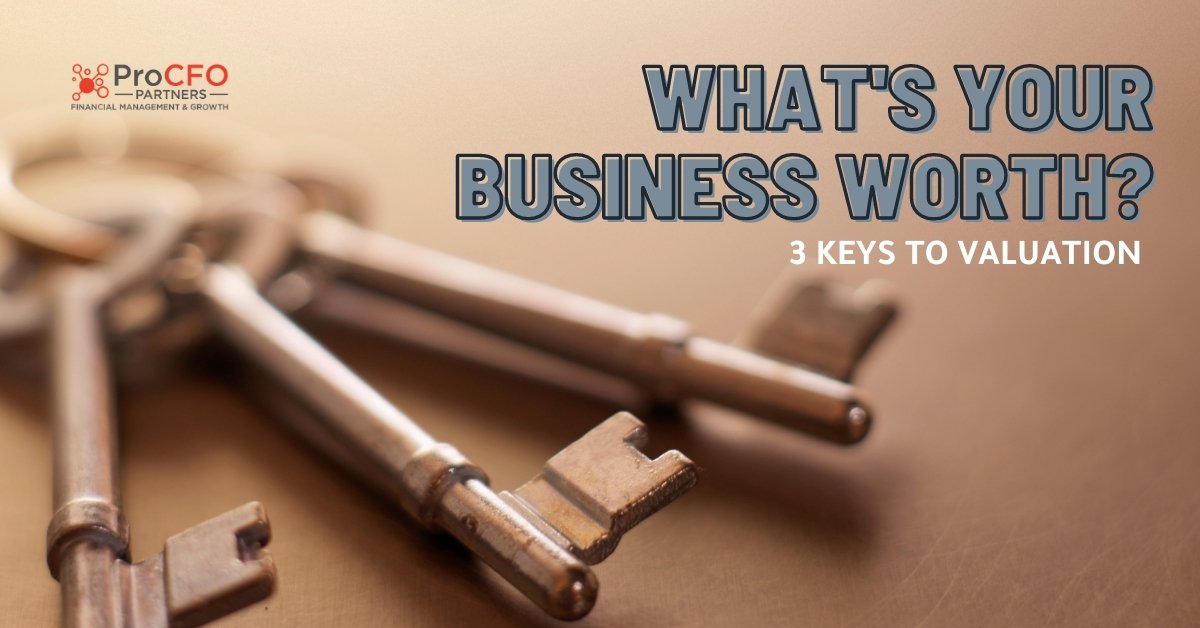How to Calculate Business Valuation? 3 Keys to Valuation
Oct 29, 2020
Valuation is an exploration of what a company is worth, but not necessarily its value based on price. The price of something can oscillate and change for a number of reasons, where for valuation we’re trying to determine with some objectivity – if you were to sell your business, what would an educated person pay for it?
To determine valuation better, we can look at 3 keys: You financials, strategic value, infrastructure, and strategic value.
Understanding Financials and Valuation
The heart of understanding financials are seemingly simple questions. Do you make money? Profits? What’s your EBITDA (Earnings Before Interest, Taxes, Depreciation, and Amortization). How’s your cash flow? Are revenues growing? How large is the company?
For valuation, it’s common to think in multiples of EBITDA to uncover a price. If a business generates $2 Million in EBITDA and you get a 4x multiple on your business, it’s worth $8 Million. The multiple can be dependent on industry and size of company – a larger company that generated $20 Million in EBITDA might get a 7x multiple. If your company is only generating $1 Million in profits it will likely have a smaller multiple because it doesn’t have the sustainability and longevity proven with a larger company.
For EBITDA and financials to be well understood, it’s important that reporting is accurate and robust – which is more likely in larger organizations. However this is also why infrastructure is so important.
An Infrastructure To Drive Valuation
Infrastructure includes your resources, such as an accounting department, and systems and processes that help a company be organized in how they operate. This includes your team and their knowledge and expertise, your culture and ability to attract and retain talent, and your ability to provide timely, accurate reporting of your financials. This can become especially important the closer you get to the transaction of selling, as the buyer will always be looking for a lever to pay less. If confidence in the reporting isn’t there and numbers are off 25%, the buyer might want a 25% discount. With strong infrastructure, including good resources and people, value can be created where buyers will pay more just to have he talent.
Strategic Value
Understanding strategic value explores what is this business? What is this asset going to be worth in the hands of somebody that can do more with it? For example, imagine you’re a small app developer with an incredible product but limited resources or ability to scale. What could that app become with the brand and use base of Apple behind it? The value of an asset like this could be significantly more if the business acquiring it has a strategic advantage of what they can do with it.
Always Be Asking: What’s My Business Worth?
When you bring your financial, infrastructure, and strategic value into a single meaningful focal point, that data gets combined with things you have less influence over, like market dynamics and trends, the global economy, media interest, etc. As a business leader, it’s key to remember:
- Financials, infrastructure, and strategic value overlap and inform each other. They aren’t isolated and separate – they’re inextricably woven together.
- You have the most control over the 3 Keys. You need to have great strategies, and then a great team to execute on them. Develop healthy financials and have the reporting to back them up.
When you behave like you might want to sell your business, you build a healthier business that’s more sustainable and high performing.


